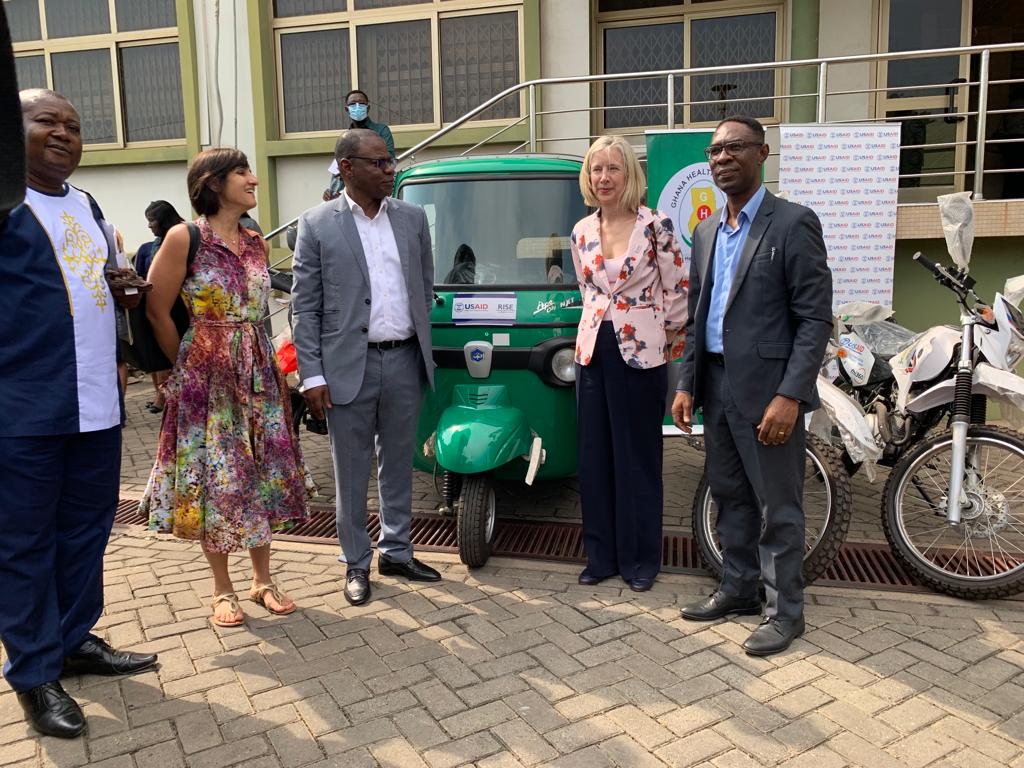
Violence Against Women and Girls (VAWG) undermines the quality of life and the well-being of families, with long-term consequences for social life? Malonin Asibi, Executive Director, Domestic Violence Secretariat, Ministry of Gender, Children and Social Protection (MoGCSP), has stated.
Ms Asibi, who was delivering the key note address at the launch of a Research Report? Economic and Social Cost of Violence Against Women and Girls (VAWG) Ghana? in Accra on April 17, 2019, said domestic violence had adverse qualitative consequences on daily life in terms of the victim's ability to work, go to school or do domestic work as well as her ability to concentrate on daily activities, levels of confidence and feelings of living in fear.
She identified broken marriages and the resultant economic burden, and the direct exposure of children to violence within the households as detrimental to child development, impeding access to education opportunities among children and responsible for youth deviant behavior.
She said ending VAWG should be a priority that required the attention of society as a whole because the negative effects of VAWG were not confined to only the victim or survivor, but extended to the society and the nation at large.
Ms Asibi, therefore, urged well-meaning Ghanaians to donate into the Domestic Violence Fund of MoGCSP to enable the Ministry support some of the extreme vulnerable cases of VAWG.
According to the Report, Intimate Partner Violence (IPV) and violence by family members are the most common forms of violence experienced by women in Ghana.
The Report reveals that missing work and/or being less productive at work due to VAWG impacted significantly on the Ghanaian economy, with households across Ghana losing almost US$286 million in income, last year, taking into account only the time missed in paid work.
The Report also reveals that an estimated 300,000 school days were missed by children every year in Ghana?with long-term impacts on the children's capabilities and future earnings? due to mothers' experience of violence.
Household poverty, the Report says, is deepened by VAWG as many women bear increased costs of medical care? incurring expenses estimated at US$53, on average, annually, equivalent to 10% of their annual per capita expenditure on non-food consumption.
The Report reveals that economically active IPV survivors were absent from work or less-productive for 12 days in 2018 while 15% of IPV survivors in Ghana stopped care work for the equivalent of 23 days in 2018.
On business losses, the Report discloses that businesses also incur losses due to IPV and non-partner sexual violence on female employees outside the workplace.
According to the Report, the economic and social impacts of VAWG, if quantified and monetized, were huge.
The Report, therefore, recommends that VAWG prevention should be built into national policies and current efforts to prevent VAWG, scaled up including mainstreaming evidence-based violence prevention approaches into education, health, social protection and other sectors.
The Report also called for the involvement of Business Associations and Chambers of Commerce in investing in prevention programmes and activities for combating VAWG.
It said there was the need to advocate for revisions to leave regulations in public and private sector to address the additional burden that violent places on women.
The Report recommended that existing support services should be strengthened while norms that limit women's help-seeking behaviour after experiences of violence by partners, family members and colleagues, among others, should be challenged.
The Report identified specific actions of strengthening existing support services such as addressing stigma, improving mental health services and building trust between communities and formal services.
It also recommended that policy on the non-physical forms of violence such as psychological and economic violence should be improved.
In a presentation, Dr Nata Duvvury, NUI, Galway and overall Principal Investigator, underscored the significance of the study as a tool for integration into government policies and budgets on a priority basis to help secure Ghana's prosperity and its economic transition to a middle-income country.
Presenting an overview of DfID's What Works to Prevent Violence Against Women and Girls Research and Innovation programme, Dr Enyonam Azumah, Deputy Team Leader, Social Sector Team, DfID, said the programme was a flagship programme of DfID that was investing in projects around the world that sought to understand the scale, drivers and cost of violence, and the most effective interventions to stop it from occurring.
Dr Azumah noted that the impact of the Ghana study might be significant in breaking new ground in understanding the impact of VAWG on the physical and mental health of individuals, community cohesion and economic stability and development in order to provide further evidence for Government to accelerate efforts to address VAWG.
In his remarks, Prof. Felix Asante, Director, ISSER, urged Civil Society Organizations and the Donor community to help move forward the process of ending VAWG.
Source: G.D. Zaney, Esq.
Read Full Story





















Facebook
Twitter
Pinterest
Instagram
Google+
YouTube
LinkedIn
RSS